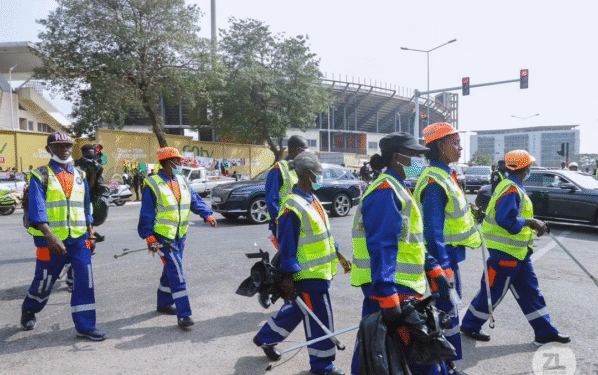Zoomlion Ghana Limited has expressed its readiness and intention to re-enter the bidding process for government sanitation contracts, specifically for the engagement of sweepers, once a competitive tender is officially opened.
This assertion was made by Zoomlion’s Director of Corporate Affairs and Communications, Emma Adwoa Appiaa Osei-Duah, during an interview on JoyFM’s Super Morning Show on Monday, June 16.
Her comments follow the recent presidential directive confirming the non-renewal of Zoomlion’s Youth Employment Agency (YEA) sanitation module contract, which officially ended in September 2024.
The government also said it will increase the fees to be paid to sweepers, arising from the “probable cost savings” from discontinuing the Zoomlion contract.
The government has indicated that future sanitation contracts will be subjected to a competitive procurement process, moving towards regional or district-based tenders.
“I am a contractor; you bring me in to come and sign a contract to manage this so-and-so job,” Osei-Dua stated, emphasising the company’s role as a service provider.
“I will not know the jurisdiction of whoever is seated there when it is signed. I expect that the officers in charge of that assignment know that this one does that and that one does that to manage the contractor.”
This implies that while Zoomlion is willing to bid, the onus of contract management and supervision also lies with the contracting government agencies.
Osei-Dua also highlighted Zoomlion’s extensive waste management infrastructure across Ghana.
She mentioned that the company has “recycling companies” in “every region”, including facilities like the Accra Compost and Recycling Plant (ACARP) and the Kumasi Compost Plant, which also features a “big wastewater treatment plant”.
She stated that some facilities also incorporate medical waste management.
She explained that these plants were conceived to address the growing scarcity of land for engineered landfills.
“It is supposed to happen that every municipality has an engineered landfill for waste management, and land is getting scarce,” she said, citing how Accra’s MMDAs now largely send waste to Adipa in the Sawam area due to the limitations of local dump sites and even the Tema landfill reaching its designed lifespan prematurely due to increased load.
According to Osei-Dua, the strategy behind these recycling plants is to give “fractions of the waste a second life” and reduce the volume going to landfills, thereby extending their lifespans.
Recognizing the high organic component in Ghana’s waste (estimated at 40% of the approximately 3,000 tons of waste produced daily), Zoomlion established compost plants to convert organic waste into products like compost. Plastics, she added, are also pelletized and repurposed into “useful products like buckets.”
When confronted with criticisms that some of these waste management investments, partly supported by funds like the Energy Sector Levies Act (ESLA), have not been fully utilised or delivered expected results like large-scale organic fertiliser production, Osei-Dua redirected the accountability.
“If there are public funds pushed into this, again I will come back to supervision,” she asserted. “If there are authorities manning every aspect of this country and if we have set up organizations… I’m a businessman, I may not even be an expert in the industry and I find business and I’m doing, somebody should put me in line and make sure that what is expected of me, the value for money is given.”
Her comments suggest that while Zoomlion established the facilities, their optimal operation and value for money require robust oversight from the state entities involved.
Zoomlion’s readiness to compete for future contracts signals its intent to remain a key player in Ghana’s waste management sector, albeit under a new, more competitive procurement regime.







